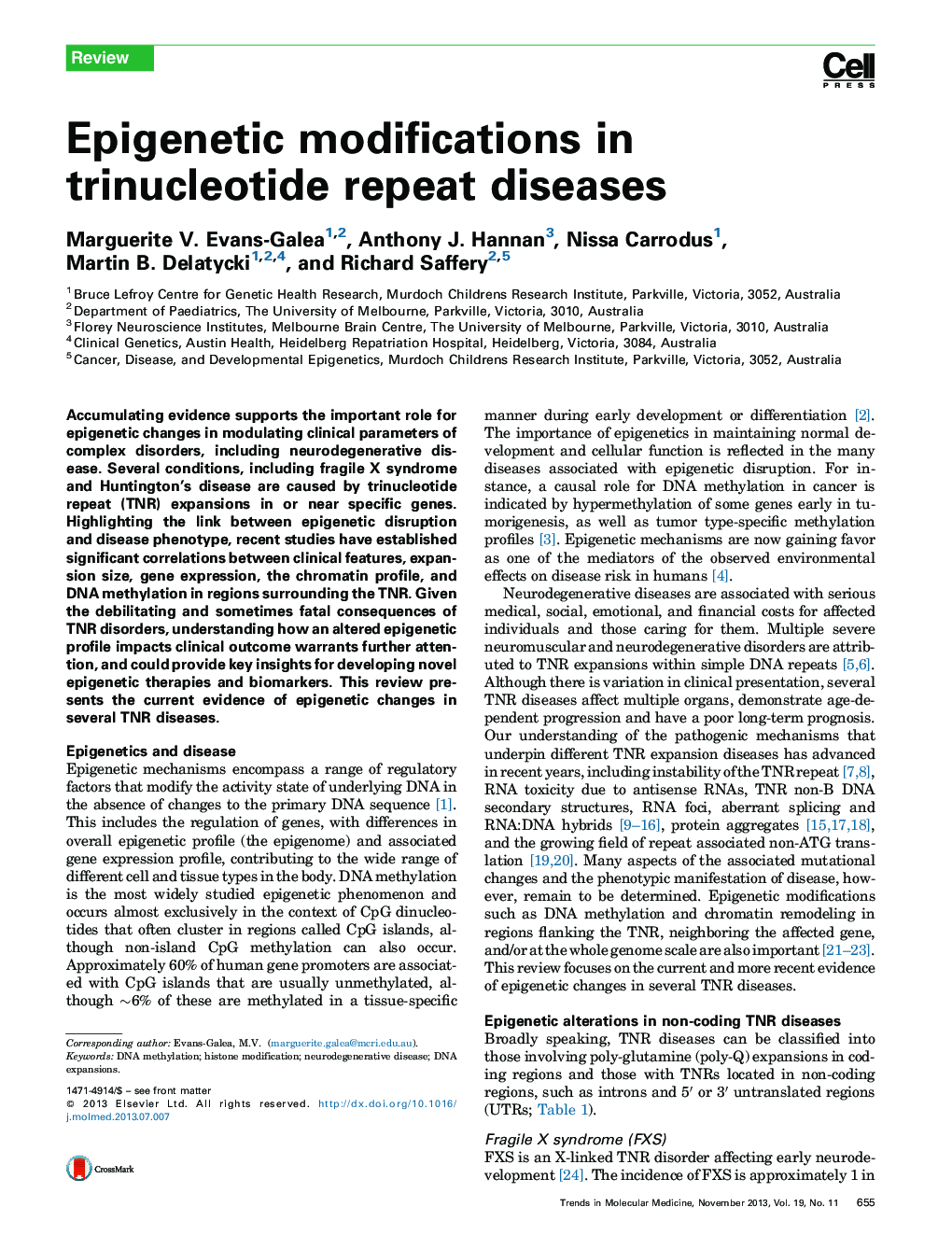| Article ID | Journal | Published Year | Pages | File Type |
|---|---|---|---|---|
| 2838577 | Trends in Molecular Medicine | 2013 | 9 Pages |
•Up-to-date overview of the epigenetic changes in trinucleotide repeat (TNR) disease.•Understanding the link between TNR disease epigenetic profile and clinical outcome.•Discuss the future potential of epigenetic biomarkers and therapies for TNR disease.
Accumulating evidence supports the important role for epigenetic changes in modulating clinical parameters of complex disorders, including neurodegenerative disease. Several conditions, including fragile X syndrome and Huntington's disease are caused by trinucleotide repeat (TNR) expansions in or near specific genes. Highlighting the link between epigenetic disruption and disease phenotype, recent studies have established significant correlations between clinical features, expansion size, gene expression, the chromatin profile, and DNA methylation in regions surrounding the TNR. Given the debilitating and sometimes fatal consequences of TNR disorders, understanding how an altered epigenetic profile impacts clinical outcome warrants further attention, and could provide key insights for developing novel epigenetic therapies and biomarkers. This review presents the current evidence of epigenetic changes in several TNR diseases.
